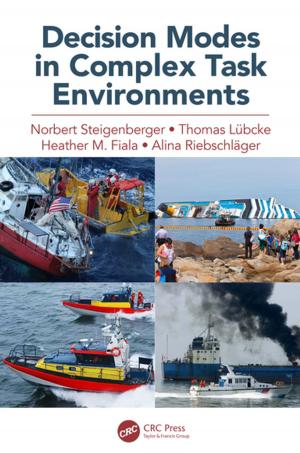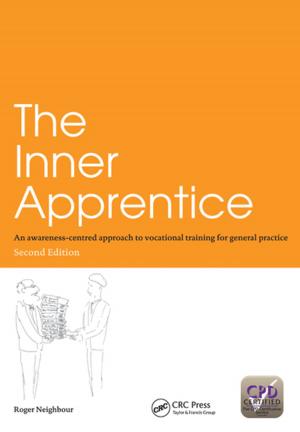Resilience Engineering in Practice
A Guidebook
Nonfiction, Science & Nature, Technology, Quality Control, Industrial Health & Safety| Author: | Jean Pariès, John Wreathall | ISBN: | 9781317065258 |
| Publisher: | CRC Press | Publication: | May 15, 2017 |
| Imprint: | CRC Press | Language: | English |
| Author: | Jean Pariès, John Wreathall |
| ISBN: | 9781317065258 |
| Publisher: | CRC Press |
| Publication: | May 15, 2017 |
| Imprint: | CRC Press |
| Language: | English |
Resilience engineering has since 2004 attracted widespread interest from industry as well as academia. Practitioners from various fields, such as aviation and air traffic management, patient safety, off-shore exploration and production, have quickly realised the potential of resilience engineering and have became early adopters. The continued development of resilience engineering has focused on four abilities that are essential for resilience. These are the ability a) to respond to what happens, b) to monitor critical developments, c) to anticipate future threats and opportunities, and d) to learn from past experience - successes as well as failures. Working with the four abilities provides a structured way of analysing problems and issues, as well as of proposing practical solutions (concepts, tools, and methods). This book is divided into four main sections which describe issues relating to each of the four abilities. The chapters in each section emphasise practical ways of engineering resilience and feature case studies and real applications. The text is written to be easily accessible for readers who are more interested in solutions than in research, but will also be of interest to the latter group.
Resilience engineering has since 2004 attracted widespread interest from industry as well as academia. Practitioners from various fields, such as aviation and air traffic management, patient safety, off-shore exploration and production, have quickly realised the potential of resilience engineering and have became early adopters. The continued development of resilience engineering has focused on four abilities that are essential for resilience. These are the ability a) to respond to what happens, b) to monitor critical developments, c) to anticipate future threats and opportunities, and d) to learn from past experience - successes as well as failures. Working with the four abilities provides a structured way of analysing problems and issues, as well as of proposing practical solutions (concepts, tools, and methods). This book is divided into four main sections which describe issues relating to each of the four abilities. The chapters in each section emphasise practical ways of engineering resilience and feature case studies and real applications. The text is written to be easily accessible for readers who are more interested in solutions than in research, but will also be of interest to the latter group.















